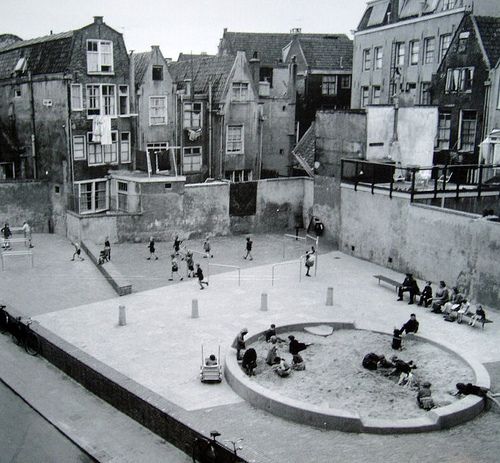 Does the neighbourhood you live in during childhood lead to differences in behavioural outcomes in adolescence? This was the central question asked in some new research we have conducted in collaboration with Prof. Ian Colman and colleagues from the APEAL Lab, University of Ottawa, Canada.
Does the neighbourhood you live in during childhood lead to differences in behavioural outcomes in adolescence? This was the central question asked in some new research we have conducted in collaboration with Prof. Ian Colman and colleagues from the APEAL Lab, University of Ottawa, Canada.
Using Canadian data from the National Longitudinal Study of Children and Youth, on over 5000 children aged between 0-3 years in 1994-5, followed every two years until 12-15 years old, our research found that changes in the reported level of neighbourhood cohesion during childhood (as assessed by the primary caregiver, usually the mum or dad) led to changes in the risk of both pro-social and adverse behavioural outcomes later in adolescence.
Specifically, we found that children whose parents reported a decline in neighbourhood cohesion over time had a 67% greater risk of experiencing hyperactivity, while children whose neighbourhoods improved over time had lower risks of both hyperactivity and indirect aggression, compared with children who remained in stable cohesive neighbourhoods. Perceived improvements in neighbourhood cohesion during childhood were also associated with more pro-social behaviour in adolescence.
Our analyses tried to take into account as many alternative explanations for these findings as possible, including factors such as gender, family socioeconomic status, neighbourhood deprivation, stressful life events, maternal depression & alcohol abuse. These factors did not explain the findings. Limitations of our study include the fact that we could not distinguish between children who moved to new neighbourhoods from children who remained in the same locality but whose neighbourhood environment changed over time.
Nevertheless, our research suggests that neighbourhood environments in childhood may shape future behavioural health outcomes and could support future interventions which aim to regenerate socially and economically deprived communities.
You can read the full article, published as a peer-reviewed FirstView paper in Psychological Medicine .
You can also read more about my group’s work on mental health and neighbourhoods .